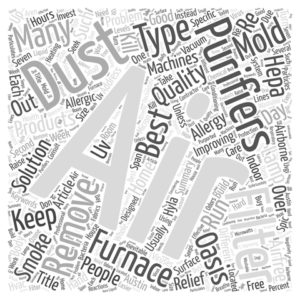WHAT IS INDOOR AIR QUALITY?
Indoor Air Quality, or IAQ, measures the quality of the air in and around buildings, primarily in relation to the welfare of those who live and work within. Maintaining a healthy IAQ in your home or business is critical to the well-being of your family, employees and customers. Fortunately, there are a few simple steps that will help keep indoor pollutants, allergens, and other irritants to a minimum.

1. Keep Moisture Out
Mold loves a moist environment. Let the humidity creep up over 60% or moisture content above 17%, and you create the perfect environment for this unwelcome guest. To prevent mold from taking hold, monitor indoor humidity with a hygrometer. They’re simple to set up, and you can pick one up at most home improvement stores for around $10. Inspect all bathrooms, laundry rooms and kitchens. All vents should be in good working order and vent through the roof. Fix any water leaks as soon as possible and promptly dry all wet areas.
2. Let Fresh Air In
Most people think of pollution as a problem limited to the outdoors where car exhaust, factory byproducts and farming insecticides are expelled into the environment. In truth, your home or business can accumulate dangerous levels of indoor air pollutants from simple daily routines like cleaning and cooking. The best way to cleanse the air in your home is often as simple as opening a window. Exhaust fans and mechanical ventilation also help to push out stale air and VOCs (volatile organic compounds) and let fresh air in. Store cleaning agents (especially bleach) in a garage or exterior store room to prevent the fumes from entering your breathable air.
3. Stick to that Weekly Cleaning Routine
Dust, chemical residuals, mold spores and allergens float through the air and settle on horizontal surfaces. Dust all furnishings and interior trim and use a HEPA filter equipped vacuum cleaner to remove these microscopic pathogens.
4. Maintain Your HVAC System
It may be the last thing you think to put on your to do list, but HVAC systems do need to be serviced every 6 months by a licensed mechanical contractor. And replace those filters every 3-6 months with at least a MERV 8 density filter. Otherwise those VOCs, soot and other toxic chemicals are just recycling back into the indoor environment.
5. Skip the Pesticides
When it comes to your home or business, keep the bug-killing chemicals outside. Pesticides have known to have adverse effects on lungs, eyes, nose and throats. In certain people, exposure has even been linked to increased risks of nervous disorders, kidney disease, and cancer. There are many pest elimination strategies available that exclude the use of toxic pesticides. Do some research and find a healthy alternative that works for your situation.
6. Landscape Defensively
Take a walk around the outside of your building. Plants should be placed at least 2 feet away from your exterior walls. Make sure the foundation is not crowded with excess soil and mulch and that the grade of the yard slopes away to facilitate drainage. Make sure gutters are directed away from the foundation as well.
7. Inspect Your Home Yearly
Check for potential moisture intrusion in water fixture areas: sinks, toilets, washer hook ups, windows, showers and tubs. Inspect floors, walls and ceilings for water stains, insect damage, and peeling paint. Inspect your roof for damage as well.
Think you might has an Indoor Air Quality Issue? Contact Memphis Mold Inspector for an Indoor Air Quality Profile today!